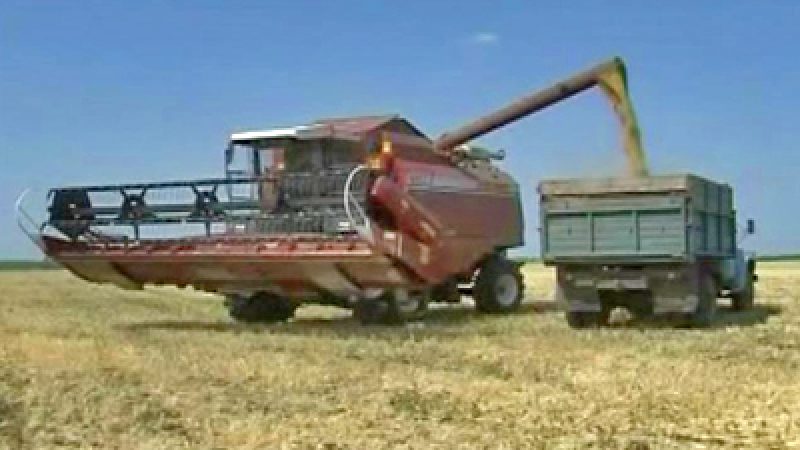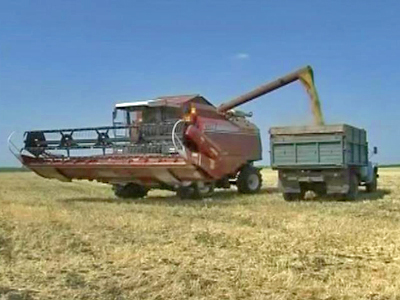
Russia: Grain Export Ban Comes Into Force

Russia’s worst heat wave has stoked wildfires and parched crops leading to a grain export ban. It’s sending prices of wheat to two-year highs and prompting the World Bank to warn against hasty restrictions on exports.
The ban came into force on Sunday and is due to last until the end of December. The move is designed to restrain domestic food prices because of the worst drought in more than a century that caused forest fires and left Moscow blanketed in smoke.
Many people are concerned about the drought and the crop failure, as well as the export ban that may lead to a price hike, as grain traders try to compensate their losses.
They hope the government will help overcome the problems.
[Muscovite Svetlana, Moscow Resident]:
“The state and the government must be ready for some bad harvest, drought and other natural calamities. It must be ready, and the granaries must be full.”
[Oleg, Moscow Resident]:
„The bread prices will grow but perhaps not too much. What do I think about it? There is nothing good in it anyway.”
[Anna, Moscow Resident]:
“It will go on just the same for us. We will eat bread as usual, but it will definitely affect the elderly people and pensioners first for all.”
Russia plans to discuss whether to extend the grain export ban into next year.
Russia harvested 97 million tons of grain in 2009, and it needs 78 million tons to cover domestic consumption.
Agriculture Ministry data shows that Russia may have no more grain to ship abroad from this year’s crop, even if it lifts export bans from 2011.
 Foto: NTDTV
Foto: NTDTV


![Pressekonferenz vom Bundeskanzler und schwedischen Ministerpräsidenten Kristersson [Livestream]](https://images-de.epochtimes.de/uploads/2025/01/Thumb-Scholz-Schwedenempfang2-400x225.jpg)
























vielen Dank, dass Sie unseren Kommentar-Bereich nutzen.
Bitte verzichten Sie auf Unterstellungen, Schimpfworte, aggressive Formulierungen und Werbe-Links. Solche Kommentare werden wir nicht veröffentlichen. Dies umfasst ebenso abschweifende Kommentare, die keinen konkreten Bezug zum jeweiligen Artikel haben. Viele Kommentare waren bisher schon anregend und auf die Themen bezogen. Wir bitten Sie um eine Qualität, die den Artikeln entspricht, so haben wir alle etwas davon.
Da wir die Verantwortung für jeden veröffentlichten Kommentar tragen, geben wir Kommentare erst nach einer Prüfung frei. Je nach Aufkommen kann es deswegen zu zeitlichen Verzögerungen kommen.
Ihre Epoch Times - Redaktion